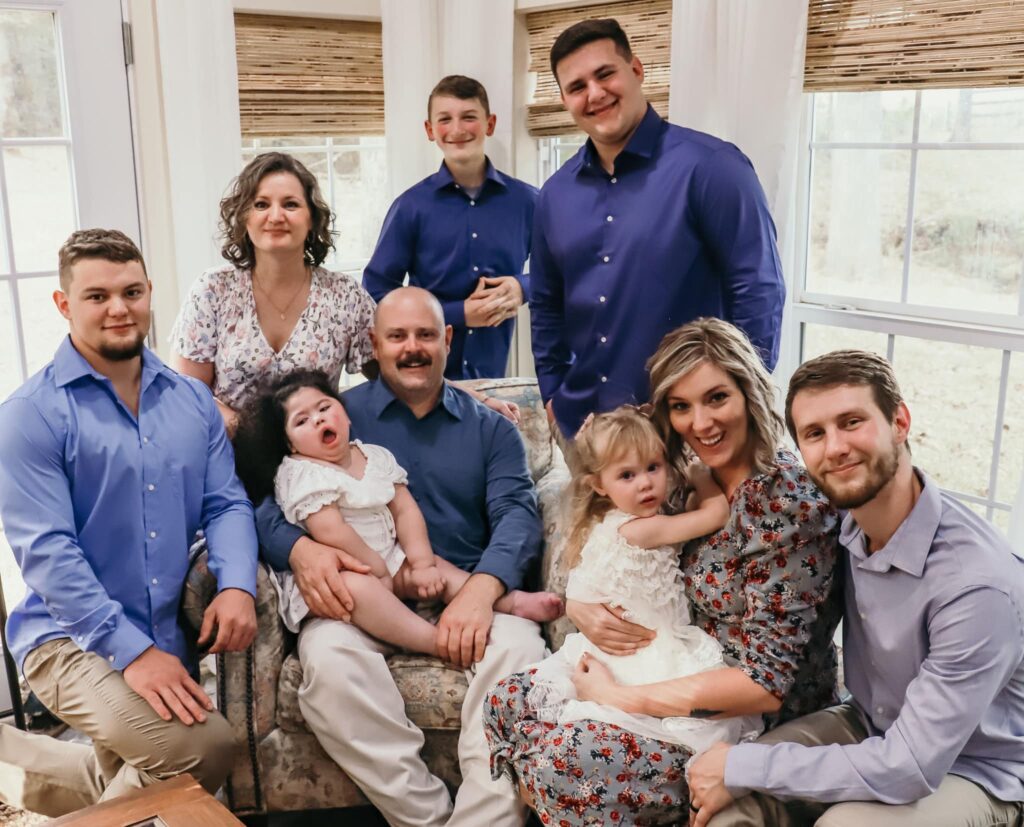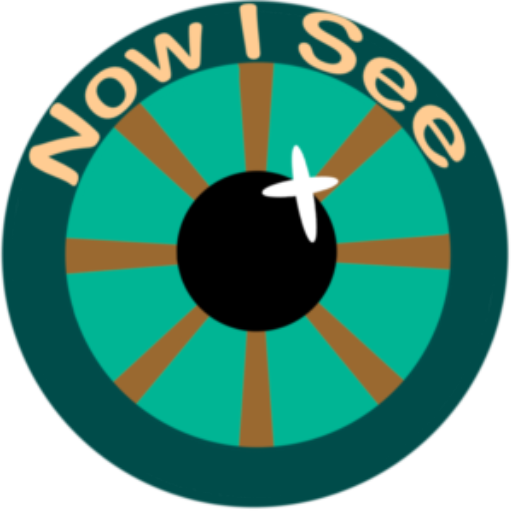“I never used to be a crier, but I have gotten really good at it in the past six years,” says Tina Davis after adopting baby Athena. Before Athena, Tina, her husband, and their three young sons lived a simpler life. “My husband’s job keeps him away from home a lot. In order for us to stay close and have a tight family, we decided to live in an RV for seven years of our boys’ lives so we could travel with him. Since we moved so often, homeschooling was the best option for us. We learned how to live with less stuff. We got to be outdoors and see more things. We saw a lot of the country. We joined local churches and homeschool groups as we found them, and we were in [Boy] Scouts, so we hopped into different scout troops and whatever other activities we could get them into.”
Then as the boys got older, they bought a house, settled down and found their place in a small east Texas community. The boys continued to be involved with Boy Scouts, each eventually earning the rank of Eagle Scout. They all became involved with the church youth group where they met the girl who would eventually become Athena’s birth mother. After graduation, even though they hadn’t really kept in touch, when Tina and the other women found out that the girl was pregnant, they hosted a baby shower for her. “We didn’t hear much from her after that, until we saw a post on Facebook that her baby was on life support in Houston. My husband happened to be working there, so I called him and he went over to see the baby,” Tina recalled. It was there they discovered the shocking news that Athena had suffered multiple life-threatening injuries including a skull fracture, a broken jaw, and nine broken ribs. Her birth parents were arrested.
“A CPS case worker contacted me and asked me if I could take the baby. I went down there, and stayed 3 weeks in the ICU with her. When I first went into the room it was dark, and she was hooked up to all the wires and things, and I asked the nurse if I could hold her. Apparently I was the first one who asked. Her parents wouldn’t hold her. When I picked her up and held her, I started singing to her, and she breathed on her own over the machine. The nurse said that was the first time she had ever done that. I knew she just needed to be loved. If I could love her to live, I would. They tried to pull life support off of her. I spent three weeks fighting for her to stay alive. I got permission to bring her home. The doctors said she probably couldn’t survive the 2 ½ hour ride. I thought I was bringing her home to die. I told them I did not want her to pass away not being loved, or not feeling loved. I could not let her die alone. And I know this sounds morbid, but I didn’t want her tombstone to have the last name of the people who did that to her,” Tina said.
According to the National Center for Biotechnology Information (NCBI), between 1,200-1,400 babies and toddlers suffer from Abusive Head Trauma, also known as Shaken Baby Syndrome, in the US every year. Most of these occur when the baby is between 3-8 months of age. One out of four of these babies will die. The rest will suffer lifelong consequences like Athena’s, which include blindness, hearing loss, cerebral palsy, severe epilepsy, sleep disorders, endocrine and gastrointestinal issues. Because Athena is unable to take anything orally, prescribed medications and nutrients are administered through a G-Tube.
“I didn’t think that I could do it, but I just thought that I would. None of us had any hesitation. We have a strong church family. We had a lot of people praying. Everyone stood behind us, beside us, and pushed us. They call her ‘our church’ baby’. About a month after she’d been admitted, we got our clearance, we went down there and brought her home. We didn’t have anything for a baby. While I was at the hospital with her, they threw me a baby shower and gave me a lot of baby things. They did what they could and knew to do. And we’ve been doing it day by day ever since,” Tina said. “I’m just an ordinary person doing what God calls me to do. Nobody ever expects to have to take care of a special needs person, but [when you are called to do it] you do. You don’t know what you’re capable of.”
It was one thing to sit with Athena in the hospital surrounded by life-sustaining machines and medical professionals. It was another thing to have to learn to take care of all of Athena’s medical needs at home. “The hospital wanted us to be set up with at home nursing. I was pretty stubborn thinking I could do it myself. I was determined to reject every nurse they sent. I didn’t want strangers in my house, especially after bringing home a baby that had been abused,” Tina recalled. “However, I did finally agree to meet one. As soon as she pulled into my driveway, and stepped out, my heart just fell. She was an old high school friend of mine. I just hugged her and said, ‘Thank you for being you.’ She’s been with us this whole time. We have since gotten a night nurse four nights a week, since Athena doesn’t sleep very well.”
“It was a big change for us,” Tina said. “We used to drop things and go when and where we wanted to. Bringing Athena home changed that.” Their schedules now require planning around medicines, feedings, sleep schedules, therapies, doctor appointments, travel permits, and extra precautions to protect her fragile immune system. Despite the inconveniences Tina says, “I’ve never heard a complaint [from the boys]. I’ve never seen them show any kind of disrespect toward the decisions we’re making. It’s always [been understood that] Athena is priority.”
“I can’t say I chose it; God chose it for me. Nobody would choose a path like this,” Tina said. But so many good things have come about as a result of having Athena in their home. The oldest son became a caseworker for CPS, and is married to a teacher. The second oldest is a Marine Corps veteran. He and the next younger son are currently in college pursuing degrees in the healthcare field. “We wouldn’t have gotten our fourth son if we hadn’t started in the foster system with her,” Tina added.
“We’ve learned patience and flexibility, definitely, and how not to freak out over everything. When Athena would be showing signs of illness, our brains would go, ‘This is the end!’ We learned to be calm, stay collected. We learned to share, to communicate better, to discuss deeper issues that might not be comfortable to talk about, to keep close to God, and keep open communication with family and friends. We learned to be vulnerable, but know that we’re strong enough to do it. We learned to pray daily; it’s legitimately the only way to get through stuff. God wants you to rely on Him. Maybe that’s why he gave us Athena. We learned to laugh at the journey, to take joy in living each day, and the importance of taking time for ourselves.”
“It is very difficult to take time for myself. I feel guilty about that. I don’t want to put the burden of caring for someone so fragile on someone else, even for a day,” Tina confessed. But Tina has also found this to be true: “God equips us with the tools we need, even when we don’t know what those are. God provides people in our lives, even when we don’t realize that He’s given them to us to help us. So don’t be too proud. Don’t think that you can do it all on your own. Don’t try to do it all on your own. But know you can do it. Some friends of mine at church are trying to start a mom’s care ministry. We are having a retreat in February, where I and others will be speaking. We’re trying to reach out and tell people it’s ok to not be ok. Sometimes you just need a moment to yourself, or to cry or to laugh with other women.”

“Milestones for typical children are not milestones for special needs children,” Tina said. “Athena can smile and laugh. She can look in your direction when you talk to her and she knows it’s you. She’s a real daddy’s girl and loves to give him kisses. Her kisses don’t look like everybody’s kisses, but we know they are kisses. She’s a happy girl most of the time, and she tells us when she’s upset. I can’t tell you what the future looks like. We know that we won’t have her here forever. We’ll just love on her everyday until she’s not with us, and we’ll still love her afterwards.”
